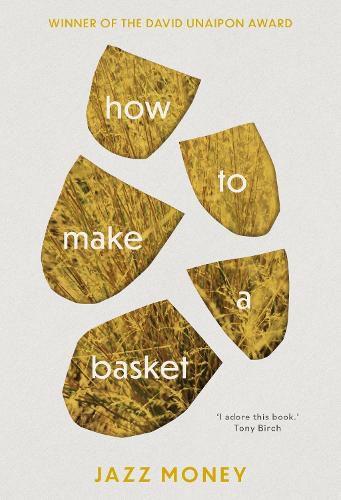Readings Newsletter
Become a Readings Member to make your shopping experience even easier.
Sign in or sign up for free!
You’re not far away from qualifying for FREE standard shipping within Australia
You’ve qualified for FREE standard shipping within Australia
The cart is loading…






The end of the world was marked with beautiful light
we should have known
Simmering with protest and boundless love, Jazz Money’s David Unaipon Award-winning collection, how to make a basket, examines the tensions of living in the Australian colony today. By turns scathing, funny and lyrical, Money uses her poetry as an extension of protest against the violence of the colonial state, and as a celebration of Blak and queer love. Deeply personal and fiercely political, these poems attempt to remember, revision and re-voice history.
Writing in both Wiradjuri and English language, Money explores how places and bodies hold memories, and the ways our ancestors walk with us, speak through us and wait for us.
$9.00 standard shipping within Australia
FREE standard shipping within Australia for orders over $100.00
Express & International shipping calculated at checkout
Stock availability can be subject to change without notice. We recommend calling the shop or contacting our online team to check availability of low stock items. Please see our Shopping Online page for more details.
The end of the world was marked with beautiful light
we should have known
Simmering with protest and boundless love, Jazz Money’s David Unaipon Award-winning collection, how to make a basket, examines the tensions of living in the Australian colony today. By turns scathing, funny and lyrical, Money uses her poetry as an extension of protest against the violence of the colonial state, and as a celebration of Blak and queer love. Deeply personal and fiercely political, these poems attempt to remember, revision and re-voice history.
Writing in both Wiradjuri and English language, Money explores how places and bodies hold memories, and the ways our ancestors walk with us, speak through us and wait for us.
Jazz Money won the 2020 David Unaipon Award for her collection How to Make a Basket, and it’s easy to see why: this is an absolutely stunning collection of poetry.
The collection opens with a poem about the Djab Wurrung sacred birthing trees – ‘this is where life begins’ – one of which was felled under the Andrews state government to make way for the Western Highway. This poem honours all that these trees mean, while bubbling with anger at the ‘white hands white hats white clipboards’ that come to destroy. From here, Money considers what it is to live in a contemporary colonial state, and the collection emerges as both protest against settler violence and a celebration of First Nations and queer love. It is beautiful and lyrical – I couldn’t put this down. Money has a strong sense of form as she finds connection with her ancestors and her Country, feeling the trees, smoke, water, sky and heat all around her.
Money incorporates Wiradjuri as well as English in her poems, and I found this a moving experience to witness the effort to preserve the language in print, while also de-centering the White reader as the default audience. This asks White readers, like myself, to listen to and hold Money’s personal and cultural history – but it is not written to appease. I was particularly struck by this in one line: ‘and if I write / it’s for our language / stolen from the mouths / of babies in cribs.’ Throughout the collection, I was reminded of Oodgeroo Noonuccal’s poetry – both in its voice of protest and in its sense of leadership and community. Readers who have enjoyed Evelyn Araluen and Alison Whittaker’s work will be similarly impressed with this collection. Jazz Money is a poet to return to again and again.
See what the Readings’ team have to say on the blog, discover related events and podcast episodes.
Read beloved and emerging Australian poets like Judith Bishop, Maxine Beneba Clarke and Nam Le.
Read incredible poetry from First Nations Australians, including Evelyn Araluen, Tony Birch and Jazz Money.